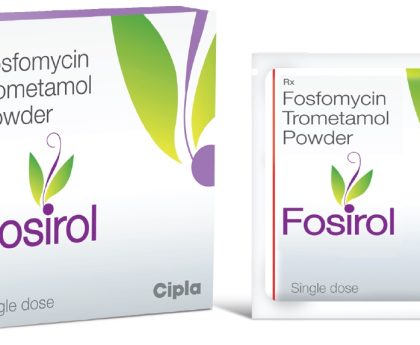Ever wondered how doctors manage to see patient after patient, meticulously documenting every detail while still providing top-notch care? Well, a big part of the magic happens thanks to medical scribes! These whiz kids of the healthcare world act as the doctor’s right-hand assistants, wielding their keyboards like Jedi lightsabers to capture every crucial piece of information during a patient visit.
Intrigued? Buckle up, because we’re about to delve deep into the world of medical scribes. We’ll explore what it takes to become one, the skills you’ll need to master, the typical work schedule, and of course, that all-important question: how much can you expect to make?
Becoming a Medical Scribe: Do You Have the Right Stuff?
While becoming a doctor requires years of schooling and residency, the path to becoming a medical scribe is a bit more accessible. Here’s a breakdown of the eligibility criteria:
- High School Diploma or GED: This is the baseline requirement for most scribe programs and positions.
- Clean Bill of Health: Background checks and drug screenings are often par for the course.
- Eagle Eyes and Speedy Fingers: Excellent attention to detail and top-notch typing skills are crucial for keeping up with the fast pace of clinic life.
But eligibility is just the first hurdle. To truly thrive as a medical scribe, you’ll need to hone these essential skills:
Master of the Medical Jargon:
- Decoding Doctorspeak: Medical terminology can sound like a whole other language. Be prepared to learn about diagnoses, medications, and procedures – fast!
- Anatomy Aficionado: Knowing your body parts inside and out is a big plus. Brush up on those biceps, femurs, and everything in between.
Communication Ninja:
- Active Listening: Doctors often gather information through conversation, so you’ll need to be an attentive listener and pick up on key details.
- Crystal Clear Communication: While you won’t be diagnosing patients, you may need to explain procedures or answer basic questions. Clarity is key!
Tech-Savvy Superhero:
- Electronic Health Record (EHR) Wizard: Most medical documentation happens electronically these days. Mastering EHR software is a must-have skill.
- Keyboard Crusader: Fast and accurate typing is essential for keeping up with the doctor’s flow and documenting everything efficiently.
Work Hours and Lifestyle: A Peek into the Scribe Schedule
The life of a medical scribe can vary depending on the healthcare facility and specialty. Here’s a general idea of what to expect:
- Full-Time or Part-Time: Scribe positions come in both full-time and part-time flavors, offering flexibility for those juggling studies or other commitments.
- Shift Work: Be prepared for some evenings and weekends, as clinics often operate outside of traditional business hours.
- Fast-Paced Environment: Clinics can be busy places, so expect a dynamic and sometimes stressful work environment.
But hey, it’s not all about long hours! Here are some perks of being a medical scribe:
- Front-Row Seat to Medicine: You’ll gain invaluable exposure to the medical field, witnessing firsthand how doctors diagnose and treat patients.
- Teamwork Makes the Dream Work: You’ll collaborate with doctors, nurses, and other healthcare professionals, fostering a strong sense of teamwork.
- Stepping Stone to Healthcare: For those with aspirations of a medical career, being a scribe is a fantastic way to gain experience and build a strong foundation of knowledge.
So You Want to Be a Medical Scribe? How Much Can You Earn?
Ah, the age-old question: how much does it pay? Earnings for medical scribes can vary depending on factors like location, experience, and the type of healthcare facility.
Here’s a ballpark figure: according to the American Association of Medical Scribe Academies (AAMSA), the average annual salary for certified medical scribes falls between $30,000 and $40,000 [Indeed Salary for Medical Scribe].
But wait, there’s more! Some scribes with additional certifications or experience can command higher salaries.
Frequently Asked Questions (FAQs) about Becoming a Medical Scribe
Q: Do I need a medical degree to become a medical scribe?
A: Nope! A high school diploma or GED is typically sufficient.
Q: What kind of training do I need?
A: Many scribe programs offer comprehensive training programs that cover medical terminology, anatomy, EHR systems, and communication skills. These programs can range from a few weeks to a few months and may or may not culminate in a certification. Certification is not always mandatory, but it can definitely boost your resume and open doors to more opportunities.
Q: Where can I find scribe training programs?
A: There are several avenues to explore. Hospitals and clinics sometimes offer in-house scribe training programs. You can also look into national certifying organizations like the AAMSA or the American College of Medical Scribe Specialists (ACMSS) for a list of accredited training programs in your area.
Q: Is there a lot of competition for scribe jobs?
A: The demand for medical scribes is on the rise! The healthcare industry is constantly evolving, and with the increasing emphasis on electronic health records and physician efficiency, the need for skilled scribes is only expected to grow.
Q: What are some career paths after being a medical scribe?
A: Being a scribe is a fantastic stepping stone for many healthcare careers. Some scribes go on to pursue further education to become nurses, physician assistants, or even doctors. The experience gained as a scribe provides valuable insight into the medical field and can be a huge asset when applying to healthcare programs.
Conclusion: Unsung Hero or Launchpad to Your Dream Career?
The world of medical scribes is a fascinating one. These dedicated individuals play a crucial role in ensuring the smooth operation of clinics and hospitals, all while gaining valuable experience in the ever-evolving healthcare landscape.
So, is being a medical scribe the right fit for you? If you’re organized, detail-oriented, and have a passion for healthcare, then this could be a fantastic opportunity to get your foot in the door. It’s not just a job; it’s a chance to learn, grow, and potentially launch yourself towards a fulfilling career in medicine.
Ready to take the plunge? Start by researching scribe training programs in your area. Brush up on your medical terminology and typing skills. And remember, the most important qualities are a genuine interest in healthcare and a willingness to learn. With dedication and a positive attitude, you could be well on your way to becoming a valuable asset to the medical team, one documented patient visit at a time.





